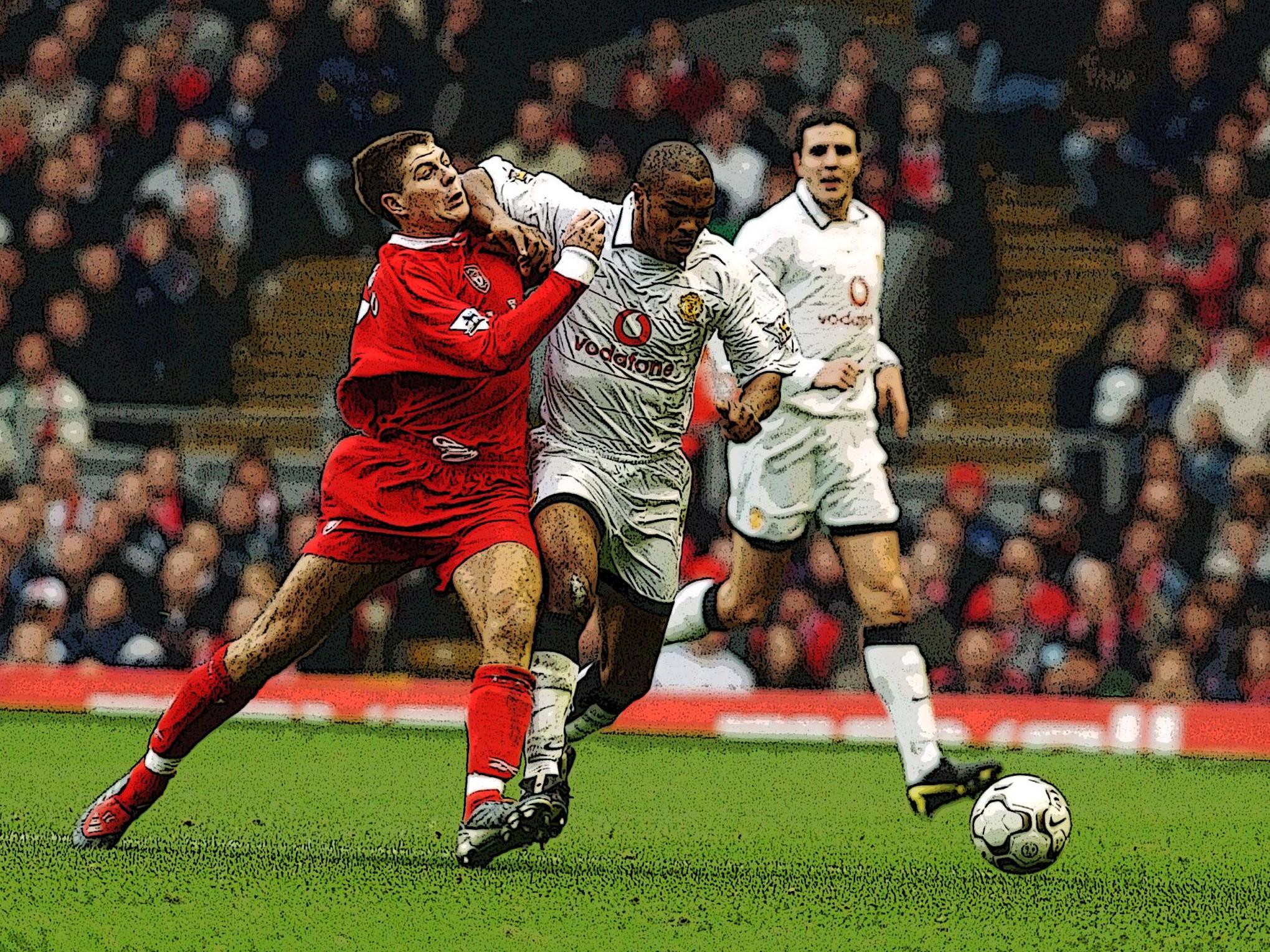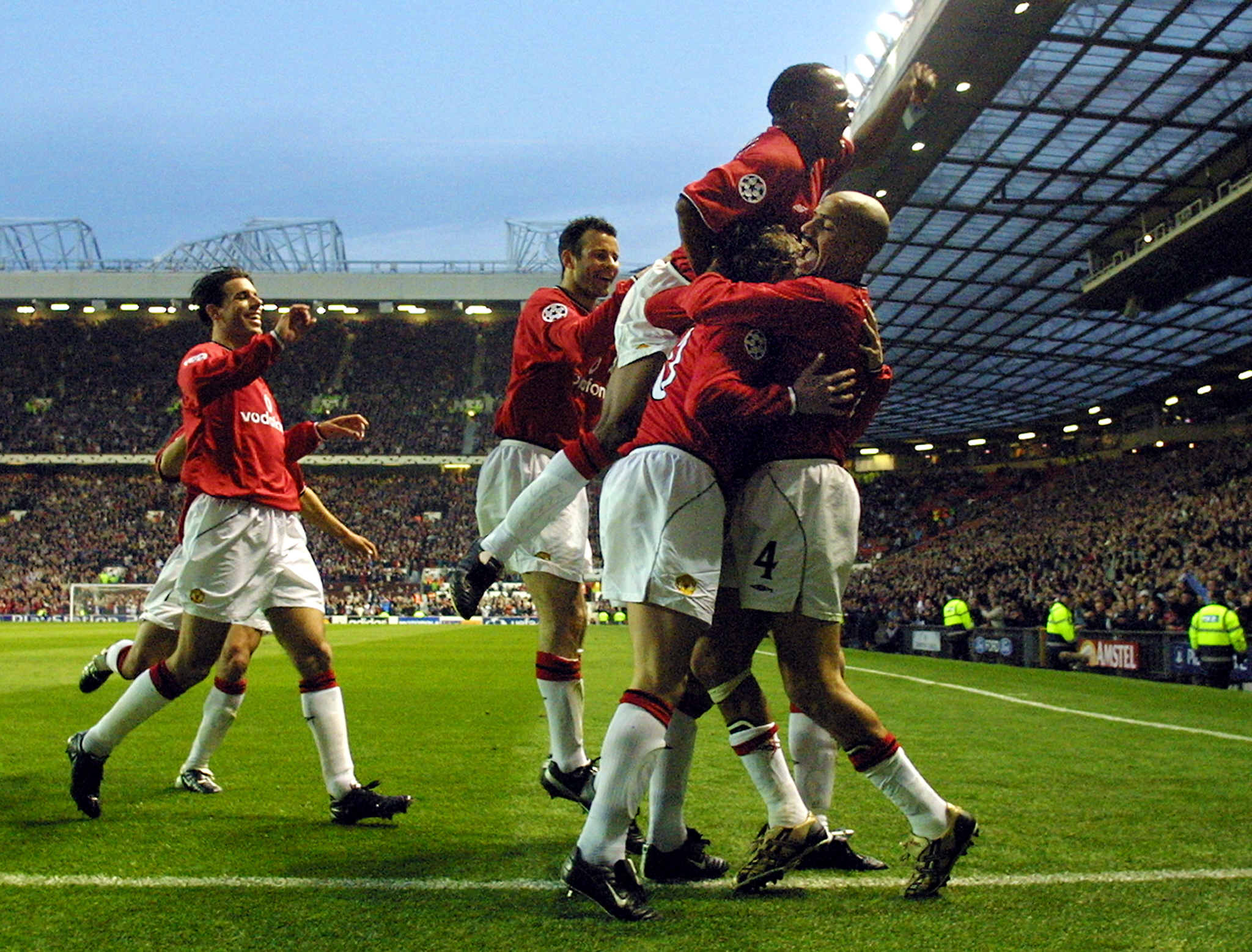Quinton Fortune on being Manchester United’s Mr Versatile: ‘It wasn’t like I could say to Sir Alex Ferguson: ‘Look, boss, I want to play in midfield’’
In the latest instalment from our series on the art of football, the former United midfielder Quinton Fortune explains how he learned how to play new positions on the proving ground of their Carrington training pitches

Your support helps us to tell the story
From reproductive rights to climate change to Big Tech, The Independent is on the ground when the story is developing. Whether it's investigating the financials of Elon Musk's pro-Trump PAC or producing our latest documentary, 'The A Word', which shines a light on the American women fighting for reproductive rights, we know how important it is to parse out the facts from the messaging.
At such a critical moment in US history, we need reporters on the ground. Your donation allows us to keep sending journalists to speak to both sides of the story.
The Independent is trusted by Americans across the entire political spectrum. And unlike many other quality news outlets, we choose not to lock Americans out of our reporting and analysis with paywalls. We believe quality journalism should be available to everyone, paid for by those who can afford it.
Your support makes all the difference.The ability to perform to a high level in a number of positions is a valuable asset for any footballer to have. Whether it’s an established starter temporarily deputising in an unfamiliar position to ease an injury crisis or a multi-functional squad player allowing the stars to rotate and rest, every successful team relies on the versatility of its players.
But sometimes, as Quinton Fortune found during his seven years as a Manchester United player, being adaptable is a matter of necessity rather than choice.
“I was coming into a team that had just won the Treble,” Fortune tells The Independent, “so it wasn’t like I could come in and say to Sir Alex, ‘Look, boss, I want to play in midfield.’ He would say, ‘I’ve got Roy Keane in the middle with Scholesy; Giggs is on the left and Becks is on the right …’ Whatever position he was going to give me, I would take. I was grateful to be playing. I had a mindset of: as long as I’m on the pitch, I don’t care where I play.
“In the beginning, when Sir Alex played me left-back, I was very fortunate because he put me there in pre-season in America, so I was able to make mistakes and adapt to that position. Then I was fine. I just enjoyed playing.”
By the time he arrived at Old Trafford in the summer of 1999, switching between positions was nothing new to Fortune. Back home in South Africa, he’d played as a centre-back until the age of 14 and later joined Tottenham Hotspur’s youth ranks as a No10. He’d played predominantly as a central midfielder when United signed him from Atletico Madrid but ended up spending most of his time in England as either a left-back or defensive midfielder.
“I tried to take it as a compliment that the manager would use me in different positions,” he reasons. “I really enjoyed it. One week you’re playing midfield, the next week you’re playing left-back, the next week you’re playing left wing.”
When it came to learning a new position and being ready to take on the best the Premier League and Champions League had to offer, Fortune regarded the pitches of United’s Carrington training complex as the ultimate proving ground; survive there, and you’ll thrive anywhere.
“I learned all of this so quickly because of the players I was playing against in training,” the 46-cap former South Africa international says. “The level was so high in training that you adapt every single day, so when it came to a match on a Saturday afternoon, it was natural, it was normal. You had to mark Scholes, Becks and Roy. It was unbelievable. That was my practise, every day in training. When you face the other teams in the Premier League on a Saturday afternoon, it wasn’t the same level.
“You watch them in training. And if you make a mistake, they will let you know. If you’re playing on Roy’s team and you concede a goal, whatever position you are playing, Keaney will let you know, or Gaz [Gary Neville] will let you know, or Giggsy will let you know. I don’t know if I was scared to ask Keaney: ‘Do you think you have a few minutes ...?’ No, you just learned by playing in training. It was great because those lessons prepare you for a match on a Saturday afternoon.
“Look at the players I was playing alongside: it was Scholesy, Roy, Nicky Butt. You look to your left, you’ve got Giggsy, Veron, Cole and Yorke up front. It was just a joy.
“My strong point would be to make sure you screen the back four, then when you get the ball, just give it to Scholesy. When Ronaldo came, it made it even easier; just give it to Ronaldo and smile because he was taking on three or four players. When you play against United, it was another level. Saturday afternoons were automatic because you’d been doing it every day in training. It was clockwork.”
For many players, constantly going from one position to another is frustrating. Most crave the continuity of a single, defined position. But Fortune embraced his role at United; in effect, being a non-specialist became his speciality.

“It was as simple as that I was in love with the game, and I’m still in love with the game,” he says. “I enjoyed playing football. If the manager wanted to put me on the right wing one week, I didn’t care; I just wanted to play.
“You have to be humble because that’s the very core of Manchester United. If you get the opportunity to play for Manchester United and you put your head around the door and say ‘Boss, I can’t play right-back this week,’ you’re at the wrong club.
United won six major honours during Fortune’s seven seasons at Old Trafford, including three Premier League titles. Although he personally didn’t always accumulate enough appearances to claim winners’ medals, he knows every great team relies on a versatile supporting cast.
“I saw on Twitter the other day someone had posted that Maldini had said the reason that great Milan team under [Arrigo] Sacchi was so good was because they had several players who could play in different positions,” Fortune says.
“When you look back at that United team: Roy could play centre-back; Giggsy could play left-back; Denis [Irwin] could play in midfield; Ronny Johnsen could play in midfield; John O’Shea was ridiculous, he even played in goal; Rio [Ferdinand] could play in midfield; Phil Neville was one of those players as well; Scholesy could play any position, he just kicked everyone.
“It was so important. You have to have players who can play in many positions. Look at [Manchester] City now, they’ve got midfielders playing left-back, and [John] Stones can come into midfield and be comfortable.
“It’s great for managers to have players they can say ‘This week you’re playing there’ to, and they just adapt. If you want success, you need to have a few players like that in your team.”

Join our commenting forum
Join thought-provoking conversations, follow other Independent readers and see their replies
Comments